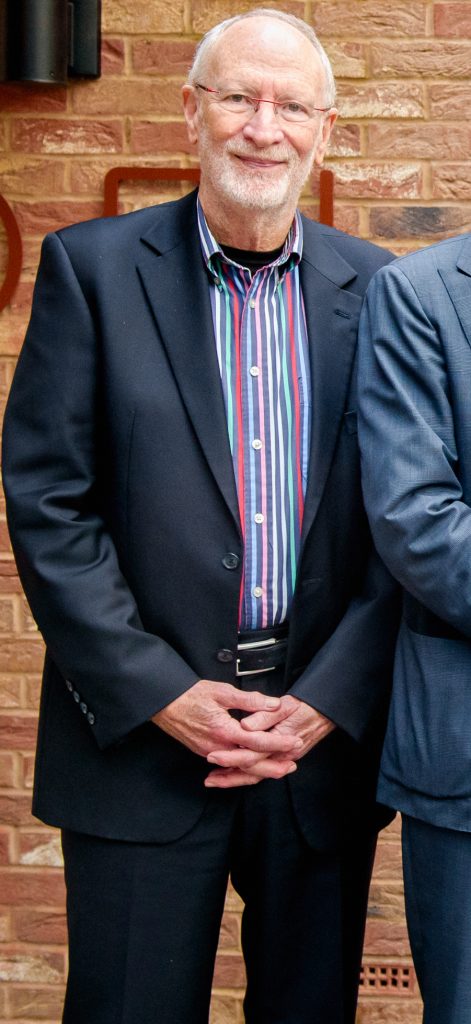What’s included?
- Introduction
- Workplaces are on the frontline
- Addressing the skills and talent crisis in the UK
- Why we need to rethink and reform now
In the United States, addiction to alcohol and illicit drugs is considered to be a disability under the Rehabilitation Act of 1973 and, later, in the American with Disabilities Act of 1990.
The latter protects those who are presently addicted to, or in recovery from, alcohol, and those in recovery for illicit drug use from being discriminated against at every stage of their employment. This means from application and interview, to working in the office.
For three decades, employers in the US have played an essential and active role in supporting prospective and existing employees who have a history of addiction. When I spent some time in the country, I saw first-hand how differently addiction and recovery was treated, considered, and spoken about compared to in the United Kingdom, both in private rehabilitation centres and in the workplace.
This difference in perspective and approach to addiction recovery is what inspired me to open my own clinic in Cheshire, where we build on the position held in America. You need to treat the whole person rather than just the symptom if you want to thrive in recovery, and that first step to open up about your addiction should be celebrated.

Workplaces are on the frontline
It is therefore unsurprising that Americans feel comfortable sharing that they are in addiction recovery during the recruitment process, and by noting this on their CV. This is welcomed and encouraged by employers, particularly for those that operate ‘recovery-ready workplaces’.
Company referrals, for example, is the most common method in America for someone struggling with addiction to go to rehab and/or get professional help for their recovery.
In these cases, the employer is acting as an ally that takes action in supporting the wellbeing of an employee.
Our Advisory Board Member Prof. Sir Cary Cooper once told me that, while he would love to see this reform introduced and encouraged by UK employers, he does not think our country is ready for this yet.

Cary thinks that this goes for both the candidate and the employer.
During the recruitment process, many candidates find it hard enough to talk about salary and mental health, let alone addiction, in the fear that this will negatively impact their chances of getting the job. And the majority of companies will likely not respond positively to this change, according to Cary.
This is partly due to the fact that there remains a stigma attached to addiction in this country which needs to be addressed. While there has been progress in this area in recent years, there is still a lack of understanding around what addiction means for someone and where it stems from.
Like in the US, the workplace is on the frontline when it comes to shifting this narrative, where thousands of people still suffer in silence and which no doubt contributes to the mental health crisis currently going on in UK workplaces.

Call us confidentially at any time to speak to a member of our team.
Call us now: 0330 111 2015
Addressing the skills and talent crisis in the UK
I think HR leaders and recruiters can do this when recruiting new talent and keeping talent from leaving their workplace.
Britain is experiencing a serious skills and talent crisis, in terms of hiring new talent and keeping them.
There is currently a record number (2.83m) of workers in the UK that are inactive due to long-term sickness, both physical and mental, and many of which have subsequently left the workforce. For many people in work without a serious health issue, we have recently seen a steep rise in ‘quiet quitting’ and high staff turnover rates, despite being in the middle of a cost-of-living crisis.
Finally, according to a recent report by the National Foundation for Educational Research, there is a growing number of workers that lack the essential skills to do their jobs, which is expected to reach seven million by 2035.

Companies need to rethink how they are supporting existing and prospective workers.
One reform I would encourage employers to introduce and normalise, particularly in the face of rising numbers of people suffering with addiction in the UK, is to encourage candidates to disclose that they are in addiction recovery during the application process and, if they are comfortable to do so, on their CV. Recruiters and HR leaders should encourage relevant applicants to share their addiction recovery story when applying for a job, and to proactively discuss this during the interview process.
In 2016, Dame Carol Black authored a report that found although employers were supportive of employees who developed addiction problems during their employment, they were reluctant to hire new staff with addiction issues.
Moreover, 50% of employers at this time stated that they would not recruit people recovering from drug and alcohol problems. Knowing this, it is evident that reform is needed.
For the candidate, this reform will not only contribute positively to their recovery but it will also encourage the candidate to apply for the job in the first place. Not only that, you will get a candidate who feels comfortable to be their authentic self, giving them the best chance to get the job in the first place.
For the employer, this will demonstrate its commitment to provide a truly inclusive recruitment process and company culture. The reform will likely encourage applicants who have a history of addiction that may have the ideal skills and experience for the role, rather than close itself off from talent during a talent shortage crisis.

For those who may still apply for the job and suffer in silence in the workplace, this can result in unaddressed issues that HR leaders have to handle further down the line, and with little knowledge of.
I think Prof. David Best from Leeds Trinity University sums this up best when he described addiction recovery as “not a passive state”. He refers to the mental fortitude, determination, accountability, self-awareness, and other positive traits associated with addiction recovery, but it is not always considered when we discuss addiction, particularly at work. Recovery should be celebrated and supported.
Why we need to rethink and reform now
Companies need to start prioritising this issue and get ahead of the curve now as the UK’s addiction crisis continues to worsen as it has since the pandemic.
The latest ONS figures show that there is a growing number of adults being treated for drug and alcohol misuse. In recent years, we are seeing more people being treated for different types of behavioural addictions like shopping, social media, and porn which are more difficult to spot.
While research from Hygiene UK found that 60% of poor performance in the workplace is related to substance abuse. There is a serious and immediate need to shift the narrative around addiction and recovery, starting with the workplace.
Employers need to play a more active role in supporting workers who are in recovery, or suffering from addiction, and to help shape how we speak about and address this subject in the workplace.

Call us confidentially at any time to speak to a member of our team.
Call us now: 0330 111 2015








